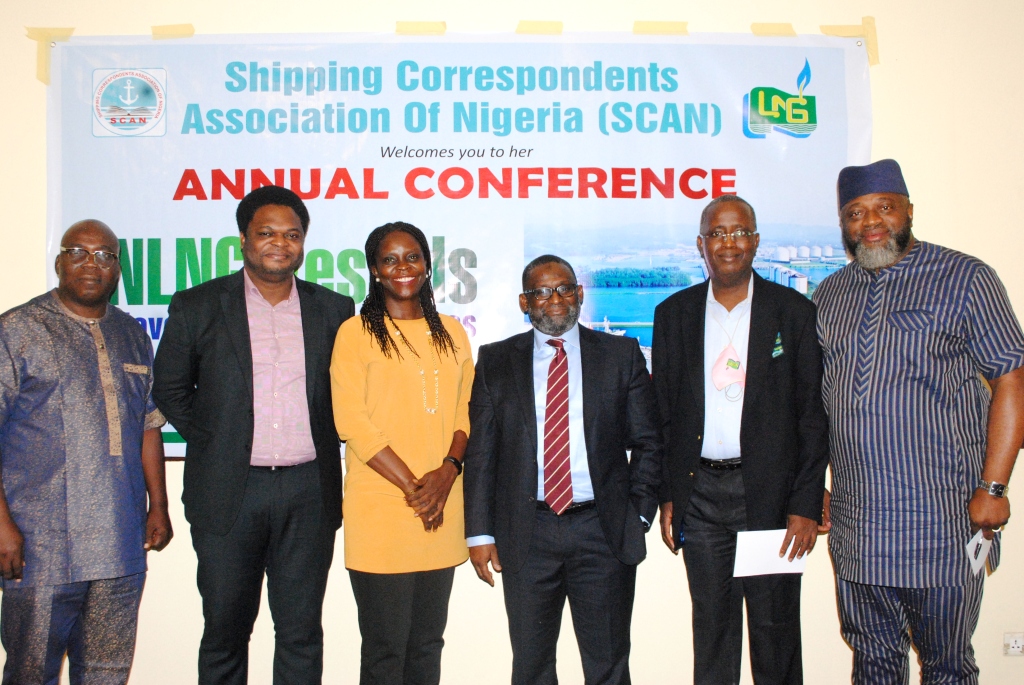The NLNG Ship Management Limited (NSML) has stressed the need for more qualified indigenous seafarers to aid LNG shipping in the country.
NSML, which is the shipping arm of the Nigeria Liquefied Natural Gas (NLNG), provides fleet and crew management services, terminal management services as well as maritime training, maritime projects management, and consultancy services.
Speaking at a conference organised by the Shipping Correspondents Association of Nigeria (SCAN), the Managing Director of NSML, Abdulkabir Ahmed said there was an urgent need for more trained onboard officers to meet with demands in the shipping sector.
Ahmed identified global maritime industry regulations as part of the challenges that have necessitated paradigm shift to Green House Gas (GHG) emissions.
He also noted that the fast-paced digitalisation in the industry, which requires different and more technically advanced knowledge and expertise, is relegating and fizzling out old practice and technical knowledge while exerting pressure on seafarers.
He said, “There is a global shortage of skilled officers in the maritime industry. Industry sources point to increasing demand for qualified seafarers, particularly the officers, and this situation is expected to persist into the future. The diminishing attractiveness of a career at sea, coupled with rising man-berth ratios and continued fleet growth is likely to result in the highest shortfall of officers in the coming years.
“The global maritime industry continues to be shaped by stringent environmental regulations and requirements. Lately, the focus of maritime regulators has shifted firmly to Green House Gas (GHG) emissions from international shipping.
“Decarbonisation is also a key focus of regulators in the maritime industry and there are rafts of changes being considered in the industry that is reputed to account for over 90% of global trade.
“The landscape of the maritime industry is shifting with the rising trends in technology. Industry sources posit that the trends are emerging out of necessity. Advances in shipbuilding, propulsion, smart shipping, advanced materials, big data and analytics, robotics, sensors, Artificial Intelligence, and communications are all impacting the maritime industry.
“The technological developments, advancements, and innovations in the maritime industry have started reshaping the industry much faster than envisioned.
“The forecast growth and rapid technological developments in maritime transportation will create the need for a newly skilled, competent, and motivated workforce.
“Additionally, the increased digitalization and automation of the shipping industry will require different and more technically advanced knowledge and expertise than what is currently obtained. These technological developments will radically change the employment patterns -in the maritime industry- in the coming years; and similarly, the required skillsets, and training needs required in the immediate, near term and long term will be significantly different from the skills currently available today.”
Ahmed also stated that piracy in the Gulf of Guinea (GoG) remained a worrying concern in the global maritime industry as incidents and attacks have soared in the last decade.
“According to the International Maritime Bureau, the Gulf of Guinea continues to be the hotspot for piracy attacks with 43% of all regional attacks in 2021. Pirates operating in the region are well equipped to attack further away from shorelines and are unafraid to take violent actions against innocent crews. Though these security challenges persist, the recently launched deep blue initiative by NIMASA has significantly reduced the impact and frequency of these piracy incidents,” he said.
Speaking earlier, the President, the Shipping Correspondents Association of Nigeria (SCAN), Eugene Agha, who appreciated the sponsorship of the conference by NSML, believes that the conference is essential as it serves as an avenue to educate journalists who are essential stakeholders in the maritime industry about the latest trend in the industry knowing well that a paradigm shift has taken place from crude oil to gas as Nigeria’s source of revenue.
Copyright Ships & Ports Ltd. Permission to use quotations from this article is granted subject to appropriate credit given to www.shipsandports.com.ng as the source.
